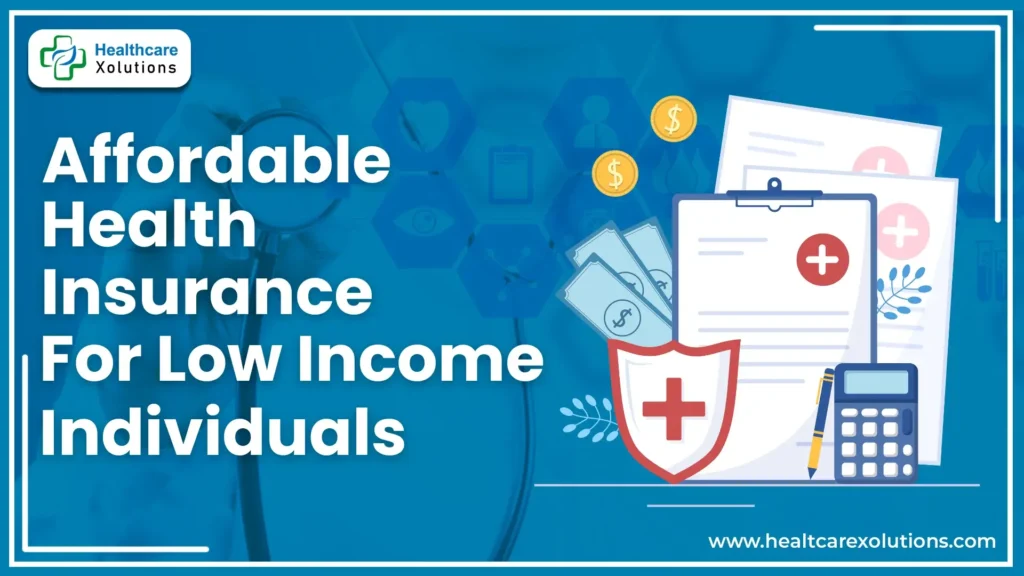How To Find Health Insurance For Low-Income Individuals

Access to affordable health insurance is essential for safeguarding your health and financial well-being. Navigating health insurance options can be overwhelming for low-income individuals, but numerous programs and resources are available to help.
This guide outlines actionable steps and resources to find suitable health insurance options tailored for low-income individuals.
Key Takeaways:
- Government Programs: Medicaid and CHIP offer free or low-cost coverage to eligible individuals.
- Marketplace Plans: Subsidized plans with premium tax credits and cost-sharing reductions are available.
- Community Resources: Health centers and nonprofits provide guidance on affordable options.
- Plan Costs: Evaluate premiums, deductibles, and out-of-pocket limits before choosing a plan.
- Advocacy Support: Nonprofits and advocacy groups help navigate complex systems.
Table of Contents
What Is Health Insurance?
Health insurance is a contract where you pay premiums, and the insurer covers eligible medical costs. It protects you from high medical expenses and ensures access to necessary healthcare services.
How To Find Affordable Health Insurance For Low-Income Individuals: Key Steps
1. Explore Government Programs:
Government-sponsored programs offer free or low-cost insurance for eligible individuals:
- Medicaid: Provides comprehensive coverage for low-income individuals and families. Check eligibility and apply at Medicaid.gov.
- CHIP: Covers children from families that earn too much for Medicaid. Services include routine checkups, immunizations, and emergency care.
2. Utilize The Health Insurance Marketplace:
The Marketplace, created by the ACA, provides subsidized health plans:
- Premium Tax Credits: Reduce monthly premiums for individuals earning 100%–400% of the federal poverty level.
- Cost-Sharing Reductions: Lower out-of-pocket expenses for qualifying individuals.
- Visit HealthCare.gov to compare plans and estimate subsidies.
3. Seek Help From Community Health Centers:
Community health centers offer services on a sliding fee scale. They can assist with enrollment in insurance programs. Use the HRSA tool to locate nearby centers.
4. Consider Short-Term Health Insurance Plans:
Short-term plans can serve as temporary coverage during transitions. However, these plans often exclude pre-existing conditions and essential health benefits. Assess your needs carefully.
5. Explore Nonprofit and Advocacy Resources:
Nonprofit organizations provide personalized assistance, such as:
- Patient Advocate Foundation.
- Families USA.
Local charities and advocacy groups also offer guidance.
6. Leverage Employer-Sponsored Insurance:
If employed, check with your employer about group health insurance plans. Many employers provide affordable options with possible subsidies for low-income workers.
7. Understand Open Enrollment Periods:
Apply for coverage during open enrollment. If you miss the deadline, you may qualify for special enrollment due to life events like job loss or marriage.
8. Compare Total Plan Costs:
When selecting a plan, evaluate:
- Premiums: Monthly payment amounts.
- Deductibles: Costs you must pay before insurance kicks in.
- Out-of-Pocket Maximums: The maximum you’ll pay annually.
Additional Tips:
- Negotiate Discounts: Ask providers about discounts or payment plans for low-income individuals.
- Stay Informed: Follow updates on healthcare laws through trusted sources like HealthCare.gov.
Conclusion – How To Find Health Insurance For Low-Income Individuals:
Securing health insurance for low-income individuals requires exploring multiple avenues, from government programs to nonprofit assistance. Take proactive steps today to protect your health and financial stability. Your health is your most valuable investment.
FAQs:
Are short-term health insurance plans a good option?
Short-term plans can be a temporary solution but often exclude pre-existing conditions and essential benefits.
How do I find a community health center?
Use the HRSA Health Center Locator to find nearby sliding-scale clinics.
Can nonprofits assist in finding affordable health insurance?
Yes, organizations like the Patient Advocate Foundation and Families USA help navigate options tailored for low-income individuals.
